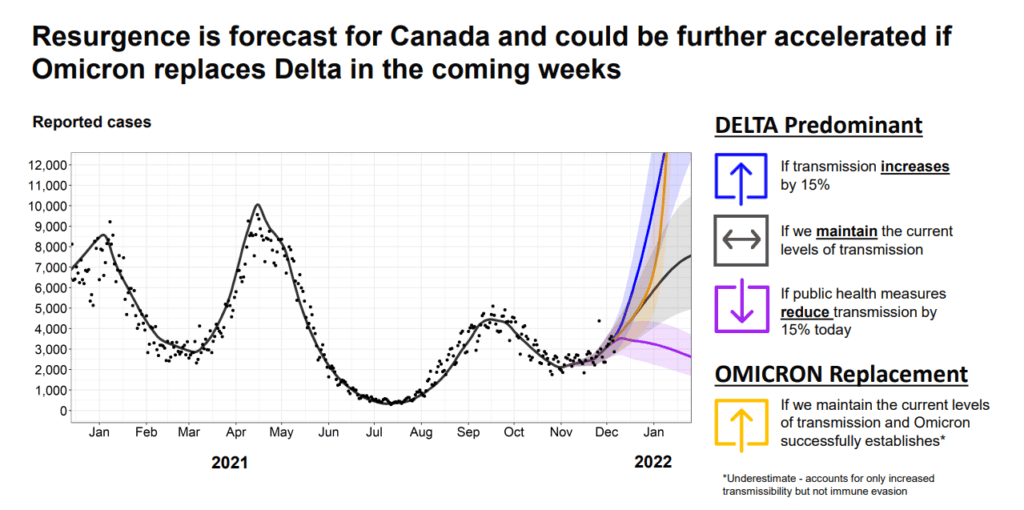Another season, another variant of COVID-19. Following the pattern of naming variants after Greek letters, Omicron brings another beacon of mystery. First reported in South Africa, this mutation of the disease is suspected to have a higher rate of transmission yet a lower rate of hospitalization.
As COVID cases rise in Ontario, up to more than 1,000 as of Dec. 10, the concerns around Omicron become more prevalent. When the ‘Delta’ variant emerged this past summer, it took more than two months to induce a fourth wave in Canada, which resulted in more than 4,000 daily cases for weeks in August alone.
According to recent data by the Public Health Agency of Canada, as of Dec. 9 there are cases confirmed to be in seven jurisdictions, with the majority of these cases being from international travellers or close contact with travellers, ranging from asymptomatic to mild.
“It feels like the same thing year after year, like we’re just treading water,” said Jeffrey Sorgenson, a student at Wilfrid Laurier University. “One day I thought we were all the way through it, and the next it just comes and slices us in half. It’s kind of odd. I just hope it doesn’t cut into too many things, then we’ll be all right.”

The federal government is predicting a rise in cases, Omicron or not. The level of severity depends on whether or not it replaces the existing Delta variant as the most infectious strain of the virus.
Recent projections show that the forecast is grim for the next two months unless a significant shift in public health measures is made immediately. Otherwise, the number of reported cases could reach the same thousands of infections seen in previous waves, exponentially so if Omicron maintains its heightened level of infection.
One measure that the public can take to help combat the virus is to get vaccinated. Unvaccinated adults and teenagers are 32 times more likely to be hospitalized with Coronavirus than their vaccinated counterparts. Boosters are available Jan. 4 for all Ontario adults who are at least six months past their second dose.
For more information on COVID-19 booster shot eligability and booking, visit this site.

